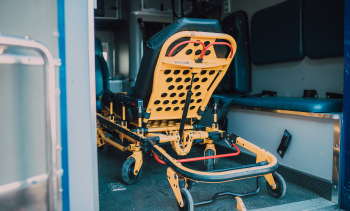
Pilates for Pain and Menopause: How Nurses Can Integrate Movement into Holistic Care
Nurses are at the frontline of patient care, often addressing chronic pain, functional limitations, and the complex symptoms associated with menopause. One emerging tool in holistic, patient-centered care is Pilates—a form of low-impact movement that promotes strength, flexibility, and body awareness. For nurses looking to expand their toolkit for helping patients manage discomfort and hormonal transitions, understanding and applying Pilates principles can make a meaningful difference.
What Is Pilates?
Pilates is a mind-body exercise system developed by Joseph Pilates in the early 20th century. It focuses on core strength, postural alignment, controlled breathing, and precise, fluid movement. Unlike high-impact workouts, Pilates is adaptable for all fitness levels and physical limitations, making it a particularly appropriate modality for clinical populations.
How Pilates Can Support Pain Management
Chronic pain is often the result of muscular imbalances, poor posture, or restricted movement. Pilates targets these issues directly by emphasizing:
- Core stabilization to reduce strain on the spine and joints
- Improved posture and alignment, which can decrease mechanical pain
- Increased flexibility and mobility, promoting smoother, pain-free movement
- Mind-body connection, encouraging patients to tune into their physical sensations and reduce tension through breathwork and controlled movement
Nurses trained in Pilates principles can guide patients through gentle exercises that alleviate stiffness and discomfort, helping them regain a sense of control and participation in their healing process.
Pilates and Menopause: Easing the Transition
Menopause is a life phase marked by hormonal changes that can result in a variety of symptoms—hot flashes, sleep disturbances, mood shifts, and joint pain among them. Research and clinical practice suggest that Pilates can benefit menopausal individuals by:
- Supporting pelvic floor health, a common area of concern post-menopause
- Reducing joint pain and stiffness through gentle movement
- Boosting mood and cognitive function via stress-relieving breathwork and physical engagement
- Improving bone density and muscle tone, which helps mitigate osteoporosis risks
By introducing these low-impact techniques into care plans, nurses can help menopausal patients find relief, strength, and renewed confidence in their bodies.
Learn More with Pedagogy Education's Online Pilates Courses
To support nurses in bringing these practices into clinical care, Pedagogy Education offers two online continuing education courses that lay the foundation for safe and effective Pilates-informed care:
💠 Pilates Principles: Pilates Foundation Course
This 6 contact hour course ($39.95) explores the foundational elements of Pilates, with a focus on anatomy, breath control, alignment, and core stabilization. Ideal for nurses new to Pilates, this course offers essential knowledge to safely introduce movement techniques into patient education and care routines.
💠 Movement for Menopause: Pilates Principles
Designed specifically to address the needs of menopausal and perimenopausal patients, this 10 contact hour course ($59.95) applies Pilates principles to hormonal health, pelvic floor support, and physical strength. Nurses will gain tools to help patients cope with menopause-related challenges through movement and mindfulness.
Why Choose Online Learning?
With flexible scheduling and immediate application to clinical practice, Pedagogy Education’s online courses make it easy for nurses to expand their skills without disrupting their busy schedules. Courses are developed by experienced professionals and offer evidence-based, practical education that enhances the quality of care nurses can provide.
Final Thoughts
Pilates is more than an exercise—it's a therapeutic approach that encourages strength, control, and resilience. For patients experiencing chronic pain or navigating menopause, nurses equipped with Pilates knowledge can offer compassionate, movement-based interventions that improve both physical and emotional well-being.
Take the next step in your professional development and explore how Pilates can transform your nursing practice today.
🧘♀️ Start with:
👉 Pilates Principles: Pilates Foundation Course
👉 Movement for Menopause: Pilates Principles

